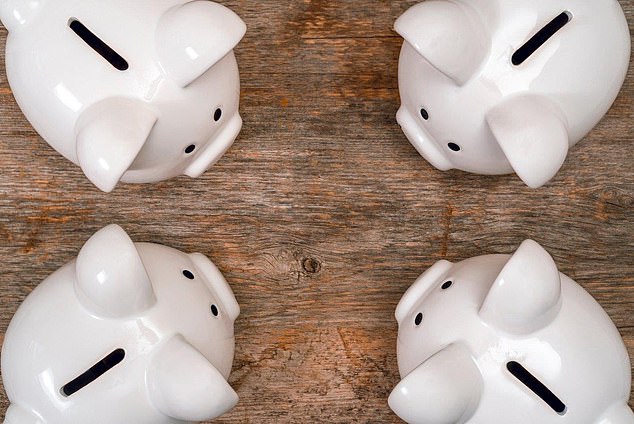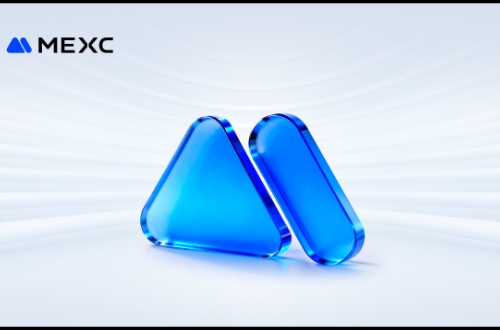The four pot saving and investing strategy that could boost your savings and build your wealth
 2024-08-19
2024-08-19
 https://www.thisismoney.co.uk/money/investing/article-13693509/The-four-pot-saving-investing-strategy-boost-savings-build-wealth.html
HaiPress
https://www.thisismoney.co.uk/money/investing/article-13693509/The-four-pot-saving-investing-strategy-boost-savings-build-wealth.html
HaiPress
Investing can make your money work harder over the long-term,but it's also important to have cash for when you need it.
So,how do you find a happy medium? Hannah M,of Virgin Money,shares how she went from one end of the spectrum to the other before working out how to balance saving and investing with the help of a four pot strategy.

Finding a balance: Working out what to save and invest takes some consideration
How I balanced saving and investing
Thinking about my finances,I realised I need to save and invest in a way that feels like I'm reaching goals. And more importantly,I don't want to have to choose between one or the other.The first thing I did was build up my emergency cash savings.
Next,I tackled my short-term savings that I didn't need immediate access to. They went into a fixed rate account,which meant I was getting a better rate and not all my medium-term money was tied into investments.
Finally,I focused on my investments. I set up a direct debit that left my bank account every month to regularly contribute to the pot,whilst I sat back,didn't lift a finger and thought long-term.
I didn't need to worry about diversification in my stocks and shares Isa,because I was investing in a broad investment fund. And if I really,really,really need to access my money held in investments,I can.
The four pot strategy
If you were reading this and hoping at the end,I'd tell you what I think you should do,sorry to say I can't. But I did promise that I'd explain the strategy that I found helped me organise my finances and get a good savings-to-investment ratio.This is the four pot strategy: one for fun; one for emergencies; one for needs and one for future me.
I apply this to the money I have each month after my fixed and essential spending.
Fun
I save 30 per cent of my monthly income after fixed outgoings into my fun pot. It's in a different bank account to where my monthly outgoings come from. This isn't emergency cash but is purely to bring me joy. Dinners out,cinema tickets. Whatever I fancy.
Emergencies
I pop 25 per cent of any non-fixed outgoings into my emergencies pot. This makes up the majority of what's in my instant access account.
Needs
There is 20 per cent that goes into my needs pot. This could be a big future holiday,home improvements or money for moving house. I don't need it instantly,so it could go in a fixed-term savings account. (And,yes,I do need that holiday to the Bahamas one day.)
Future me
Finally,I put 25 per cent into my future me pot. This is my Stocks and Shares Isa. I know I'm not going to access this for the next five years or more,so I try and forget about this.
I also save into a workplace pension for future-me. But since that money comes out of my salary,I don't add it to my after-outgoings savings pots and include it in the four pot strategy.
It's taken a few years for me to find the right balance. So,your balance could look very different to mine.
How you split your money,must work for you. Your needs now,and your needs in the future. But most importantly,thinking about this should give you clarity on where your money is,and where you want your money to be moving forward.
Virgin Money: Investing made extra
A message from the article sponsor: Virgin Money is rewarding customers who save and invest this summer.
Supercharge your cash savings with up to 6.65% (AER1/Gross2 P.A.) interest when you also invest with us.
Put £5,000 or more in our Stocks & Shares Isa and leave it for a year to bag a 2% (AER1/Gross2 P.A.) savings bonus on our 4.65% (AER1/Gross2 P.A.) 1 Year Fixed Rate E-Bond Exclusive. Now that's extra.
The offer's only available until 30 September 2024,so get your skates on. Isa capital at risk. Terms apply.
Our Fixed Rate E-Bond rate may change in the future. When you apply for the Bond,we'll let you know the rate that's available.
> Head to the Virgin Money website to find out more
1 Annual Equivalent Rate (AER) is the rate if interest is paid and compounded once a year. 2Gross P.A. is the rate of interest paid without deduction of tax. Virgin Money is a trading name of Virgin Money Unit Trust Managers Limited.
We hope the information in this article is useful,but it isn't financial,personal or tax advice. If you want expert advice,you should speak to an Independent Financial Advisor. Remember,the value of investments can go up and down,so you may get back less money than you put in.
You should think of investing as a medium to long-term commitment – so be prepared to invest your money for at least five years. Tax depends on your individual circumstances and the regulations may change in the future.





